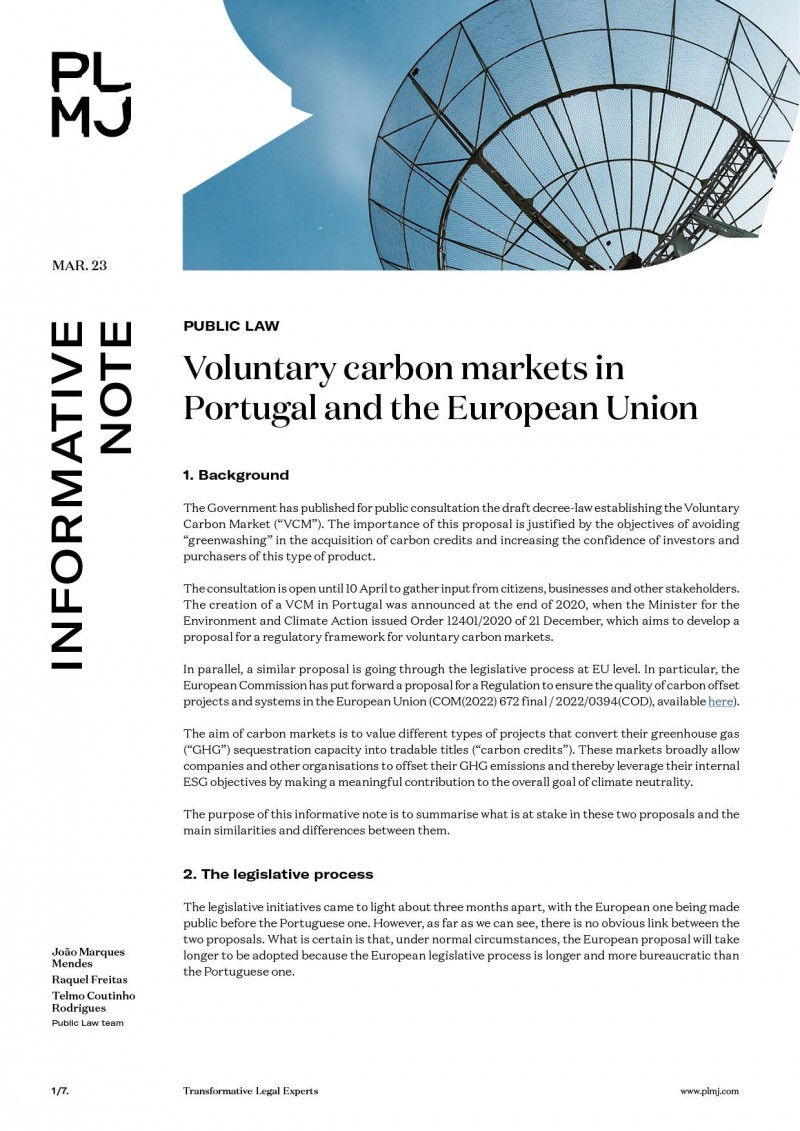-
Services
-
Practice Areas
- Banking and Finance
- Capital Markets
- Corporate M&A
- Dispute Resolution
- Employment and Labour
- EU and Competition Law
- Healthcare, Life Sciences & Pharmaceuticals
- Intellectual Property
- Projects and Energy
- Public Law
- Real Estate and Tourism
- Responsible Business
- Tax
- Technology, Media and Telecommunications
-
Sectors
- Agribusiness
- Banking and financial institutions
- Distribution and retail
- Energy and natural resources
- Government and public sector
- Healthcare, life sciences and pharmaceuticals
- Infrastructure
- Insurance and pension funds
- Manufacturing
- Mobility, transport and logistics
- Real estate and construction
- Social economy
- Sports
- Tourism and leisure
- Desks
- Buzz Legal
-
Practice Areas
-
People
-
Knowledge
-
Newsletter SubscriptionKeep up to date
Subscribe to PLMJ’s newsletters to receive the most up-to-date legal insights and our invitations to exclusive events.
-
-
About Us
-
Apply hereWe invest in talent
We are looking for people who aim to go further and face the future with confidence.
-
- ESG
-
Services
-
Practice Areas
- Banking and Finance
- Capital Markets
- Corporate M&A
- Dispute Resolution
- Employment and Labour
- EU and Competition Law
- Healthcare, Life Sciences & Pharmaceuticals
- Intellectual Property
- Projects and Energy
- Public Law
- Real Estate and Tourism
- Responsible Business
- Tax
- Technology, Media and Telecommunications
-
Sectors
- Agribusiness
- Banking and financial institutions
- Distribution and retail
- Energy and natural resources
- Government and public sector
- Healthcare, life sciences and pharmaceuticals
- Infrastructure
- Insurance and pension funds
- Manufacturing
- Mobility, transport and logistics
- Real estate and construction
- Social economy
- Sports
- Tourism and leisure
- Desks
- Buzz Legal
-
Practice Areas
-
People
-
Knowledge
-
Newsletter SubscriptionKeep up to date
Subscribe to PLMJ’s newsletters to receive the most up-to-date legal insights and our invitations to exclusive events.
-
-
About Us
-
Apply hereWe invest in talent
We are looking for people who aim to go further and face the future with confidence.
-
- ESG
Informative Note
Voluntary carbon markets in Portugal and the European Union
15/03/2023The Government has published for public consultation the draft decree-law establishing the Voluntary Carbon Market (“VCM”). The importance of this proposal is justified by the objectives of avoiding “greenwashing” in the acquisition of carbon credits and increasing the confidence of investors and purchasers of this type of product.
The consultation is open until 10 April to gather input from citizens, businesses and other stakeholders. The creation of a VCM in Portugal was announced at the end of 2020, when the Minister for the Environment and Climate Action issued Order 12401/2020 of 21 December, which aims to develop a proposal for a regulatory framework for voluntary carbon markets.
In parallel, a similar proposal is going through the legislative process at EU level. In particular, the European Commission has put forward a proposal for a Regulation to ensure the quality of carbon offset projects and systems in the European Union (COM(2022) 672 final / 2022/0394(COD), available here).
The aim of carbon markets is to value different types of projects that convert their greenhouse gas (“GHG”) sequestration capacity into tradable titles (“carbon credits”). These markets broadly allow companies and other organisations to offset their GHG emissions and thereby leverage their internal ESG objectives by making a meaningful contribution to the overall goal of climate neutrality.
The purpose of this informative note is to summarise what is at stake in these two proposals and the main similarities and differences between them.
